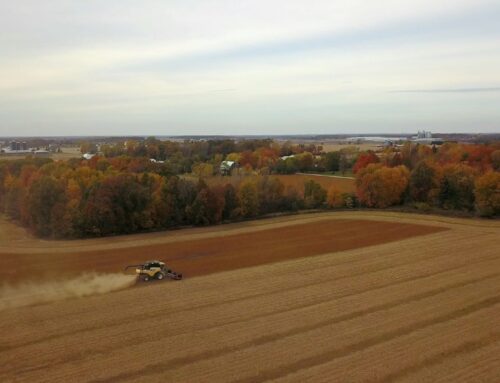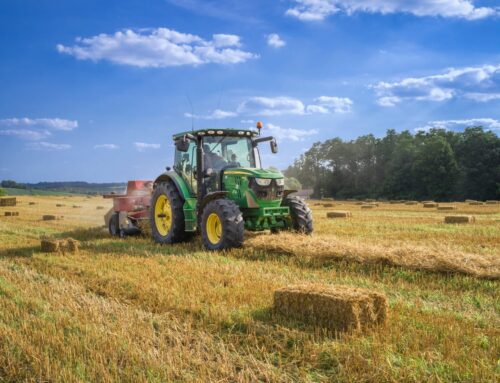This week the House Agriculture Committee held a member day to allow any Member of Congress to discuss concerns or new proposals with the committee. Even though we at TCS read every spending bill, understand how budgeting works, and have actually been in Washington longer than most elected representatives, we did not get invited to share our thoughts. But you, lucky reader, get to read what we would have said had we been there.
Thank you, Chairman Scott and Ranking Member Thompson, for holding this hearing. Taxpayers for Common Sense is a nonpartisan budget watchdog serving the American taxpayer. As you’re aware, we are deeply concerned with federal agricultural policy, not just because of its ballooning cost to taxpayers, but also its overall failure to promote producer-focused resilience in the face of economic, climate, and other challenges.
Last year, direct government payments to agriculture reached a record $47 billion, comprising 38 percent of farm income. Unexpected pandemic aid, continued disaster subsidies, and underlying farm bill payments led to a level of subsidization unseen since 2001.
Thankfully, the economic outlook is improving. Record corn and soybean returns are expected this year. Many other commodity prices have reached near-record highs. Exports have jumped despite Trump’s recent trade war. Overall, the agriculture economy rebounded from the pandemic better than expected.
Yes, a concerning drought exists in the West and many of us are Zoom-ed out. But it is likely to be a banner year for many farmers and ranchers. So Congress must capitalize on this calm in the economic storm to create a more cost-effective, accountable, transparent, and equitable farm safety net. One that promotes farmer and rancher resilience instead of deepened dependence on taxpayer subsidies.
Put Faith in Producers, not Politicians
Congress should reorient farm policy so farmers can respond to markets instead of political will, better utilize private risk management tools, and make sound decisions in the face of inevitable risks. More specifically, Congress should:
- End abuse of the Commodity Credit Corporation. The Trump-induced trade war alone cost taxpayers $28 billion from 2018-2020, not to mention biofuels infrastructure subsidies and more special interest supports.
- Address underlying issues leading to more federal spending. Spending more than the $50 billion already authorized for COVID-19 agriculture relief on industries such as cattle may fail to address longstanding issues on beef pricing and meatpacker consolidation.
Resilience, not Dependence
Simply spending more money on everything from beef to biochar will not make farmers more resilient in the long run. Taxpayers should only assist agricultural producers in real times of need – such as severe catastrophic losses – similar to other industries. Taxpayers shouldn’t be guaranteeing farmers’ annual profits through crop insurance. Don’t take our word for it; farmers even admit it! Congress can do more for farmers and ranchers, but it takes doing less:
- Remove obstacles to resilience. Eliminate subsidies that promote economic- and climate-risky production decisions at taxpayer expense and discourage producers from implementing risk-reducing (and profit increasing) conservation.
- Forgo more disaster aid. An alphabet soup of disaster programs exists in the farm bill. Congress has previously shied away from post-event disaster aid in favor of crop insurance subsidies, for better predictability. Layering on more expensive and redundant programs will not lead to long-term producer stability or resilience.
Organize Your Toolbox before Buying (Expensive) New Tools
We’ve all been there. You can’t find the screwdriver you know is hiding. So you buy a new one. The farm and biofuels lobbies are proposing the same thing – new programs with huge price tags – to combat climate change. Instead, Congress should use tools at its disposal by:
- Reforming existing conservation programs. Give taxpayers – and farmers – greater bang for their buck by prioritizing effective conservation and recognizing cost savings benefits.
- Rejecting calls to create new, unproven carbon sequestration programs. Instead, make carbon sequestration a priority in proven, existing conservation programs.
- Increase USDA program equity and accountability. Enact stricter payment and income limitations to ensure millionaires and non-farmers don’t reap the lion’s share of conservation and farm program dollars as they do now. Properly enforce current conservation strings attached to agriculture subsidies instead of allowing producers to destroy carbon-rich land at taxpayer expense.
- Avoid false solutions. Additional subsidies for biofuels and biomass may increase – instead of decrease – greenhouse gas emissions. Planting trees sounds great on paper but ignoring subsidies currently on the books contributing to deforestation won’t reduce climate risks.
Mr. Chairman, the challenges facing farmers and ranchers require more than dollars, they also require change. Congress must put its faith in producers’ ability to deploy reformed farm programs to improve their economic and environmental resilience. We look forward to working with you to do this in the next farm bill.











Get Social